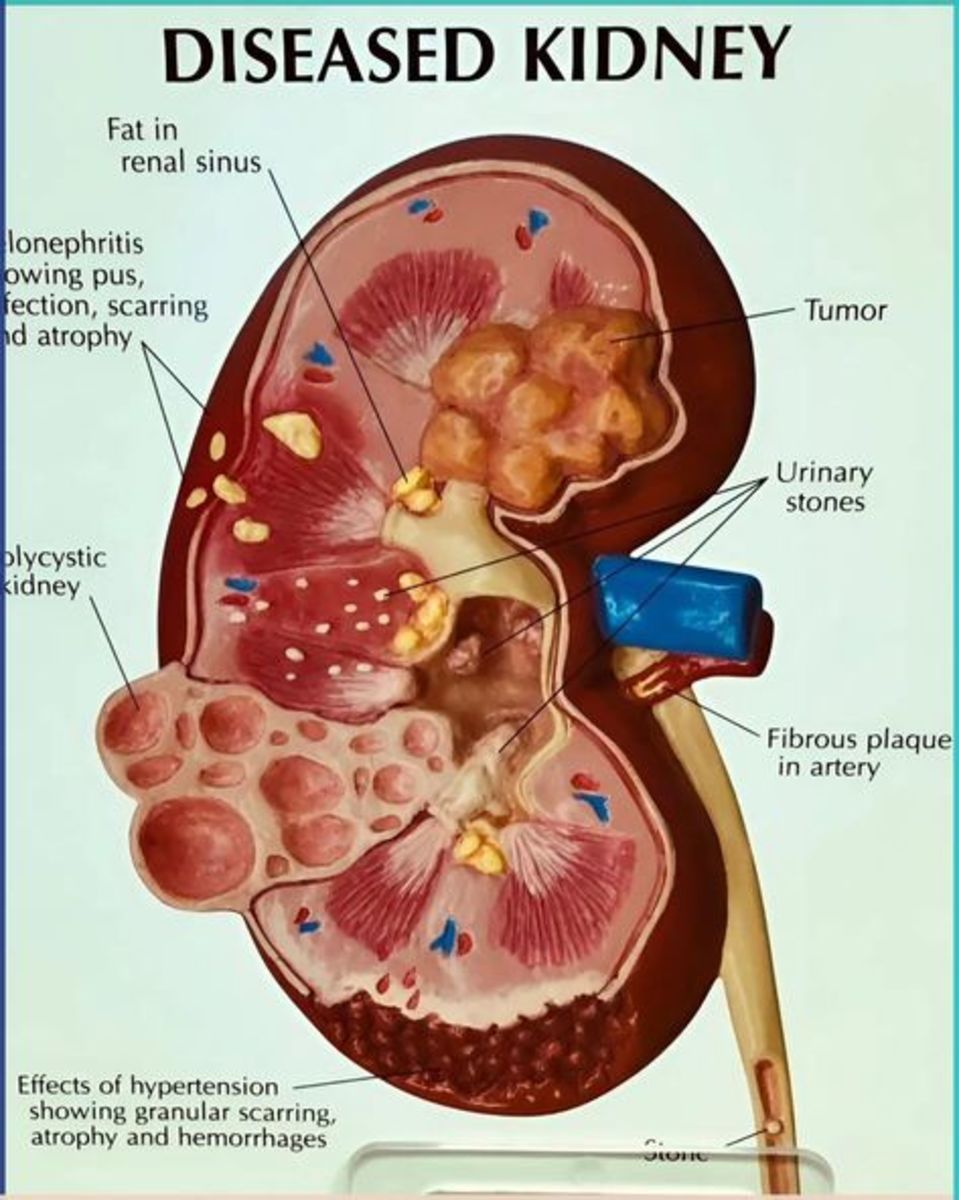5 Diseases Responsible For Itching You May Not Expect
Itching is a common symptom with a variety of causes. It can be defined as continuous or episodic desire to scratch the skin. Further scratching would usually worsen in the feeling of itching.
This can be so intense, so that scratching can damage the skin with subsequent blood oozing and skin infection.
The majority of causes of itching are not serious, and are only localized to limited areas of the skin. These include allergic skin conditions and insect stings. They are usually of short duration and not severe.

Furthermore, they are easily identified and effectively treated in most of cases. In addition, dry skin (common in elderly people) , is a an important cause of itching.
But uncommonly, itching may be the only symptom of some other, either serious diseases, or diseases of internal body organs that require specific blood tests, imaging, etc, for the diagnosis to be made.
In this article, I highlight five of these diseases, emphasizing the peculiar features of each,
1- Chronic liver disease
Some liver diseases induce itching. This can be the only symptom for a year or more. A good example is primary biliary cirrhosis, a chronic disease of the bile ducts in the liver which progress slowly to end up with liver cirrhosis, when the normal liver cells are replaced by fibrosis.
In primary biliary cirrhosis during the early stages of the disease, even before any symptoms or signs appear. Affected patients commonly complain of itching all over the body with no obvious skin disease. It may be overlooked by physicians, and treated mistakingly by creams and lotions, with no significant improvement.
Only when other symptoms develop, some specific blood tests are performed on strong suspicion, otherwise the disease is usually missed.
patients with liver cirrhosis of other causes (other than primary biliary cirrhosis), may also manifest with itching without any other clear associated signs or symptoms.
Any disease of the bile duct causing obstruction of the ducts (by a stone or cancer), would result in itching. Although, in these cases eyes and skin are yellowish (jaundiced) and the urine is frequently tea colored.
Symptoms of early liver disease
2- Chronic kidney disease
A disease of kidneys may be secondary to systemic disease affecting many body organs or may be just a disease primarily affecting the kidneys. Sometimes, the process is subtle and chronic, with virtually no symptoms, and discovered by chance when blood urea is checked for any other reason.
In chronic kidney disease, urea level In the blood is elevated as well as other toxins, owing to the failure of kidneys to eliminate them.
These toxins may induce itching as the only or main symptom, long before kidney disease is diagnosed.
Occasionally, fatigue, hiccups, and decreased urine volume may exist, that can suggest a problem with kidneys. Fatigue is especially common.
Chronic kidney disease symptoms
3- Anemia
Anemia is defined as low hemoglobin level. The Normal reference range for is 13.5 to 17.5 grams per deciliter for men, and 12.0 to 15.5 grams per deciliter for women (the reference range is slightly variable in different medical sources).
Anemia is not a disease per se. It is a consequence of a wide range of diseases, some can be serious.
Cancer of the colon may cause continuous loss of blood over time that finally results in anemia.
Beside the various causes, the mechanism of anemia can be also variable. It may occur if any of these is deficient in the body : iron, vitamin B12 or folic acid. Irony deficiency anemia is particularly a cause of chronic itching.
Chronic and unserious disease resulting in iron deficiency anemia like celiac disease, should be sought since they are usually silent, with no other evident abnormality or symptoms.
Of course, in addition to itching, there may be other symptoms associated with iron deficiency anemia, like fatigue, exertional breathlessness, palpitations (abnormal feeling of heart rate), and headaches, which can raise the suspicion of the diagnosis.
4- Thyroid and parathyroid gland disease
Abnormally increased thyroid gland function is called hyperthyroidism. It is characterized by increased blood level of the thyroid hormone (thyroxine). Symptoms may be clear, though they are very non-specific. In some patients itching is one of the common complaints.
Itching is usually generalized and may not be continuous. Frequently, it is associated with other more suggestive symptoms of hyperthyroidism, like the decrease in body weight, despite normal appetite, palpitations, and increased irritability and nervousness.
Alternatively, thyroid gland may become under-functioning (hypothyroidism). Patients with hypothyroidism frequently complain of itching as a result of their dry skin. Hypothyroidism is also a disease that may not be easily recognized in early stages by symptoms alone.
The two pairs of the parathyroid glands are small (less than a pea size) , and are adherent to the thyroid gland. They normally secrete the parathyroid hormone which regulates calcium balance in the body.
Excessive parathyroid hormone secretion (hyperparathyroidism), leads to higher calcium level in the blood, which in turn, is responsible for a number of symptoms, including itching.
Since hyperparathyroidism is initially silent or with only few non-specific symptoms (for example, pain in the abdomen, increase urine excretion, and itching), it is invariably detected when complications happen, particularly kidney stones and stomach ulcers.
When hyperparathyroidism is suspected, these complications are already evident, and it's important to notice the increased urination as an important symptom of high calcium level in the blood.
Itching and thyroid disease
5- Polycythemia
This is a blood disorder in which there is abnormal proliferation of blood cells, particularly red blood cells. The term polycythemia literally means increased blood cells (poly- = many , and -cythemia= cells in the blood).
In polycythemia, the hemoglobin is typically raised above the normal range. The usual underlying cause is any disease of the heart or lungs, in which there is reduced oxygen in the blood.
When oxygen in the blood is low, the bone marrow ("blood factory"), tries to compensate for by producing more red blood cells to improve oxygenation of body organs.
But uncommonly, polycythemia is not secondary to other dieases (either lung or heart disease); rather it is primarily a disease of bone marrow with uncontrolled overproduction of different blood cells, including red and white blood cells, and platelets.
This condition is considered as a type of blood disorders that may transform into a malignant disease at any time, and is known as Polycythemia Vera.
Patients with Polycythemia Vera, before the diagnosis is made, usually describe symptoms that when correlated to each other, the diagnosis can be made at an earlier stage.
Symptoms generally include fatigue, lightheadedness, visual blurring and skin itching. In this case, itching is quite characteristic. In addition to being generalised, it is particularly either brought up or worsened during hot bath.
The reason for this is that blood flow increases when the skin is warm, allowing more blood cells to reach the skin, including the histamine-secreting white blood cells, known as basophils. The more histamine in the skin, the more itching is intense. Once the skin becomes less warm, itching usually subsides.
The presence of visual blurring and other symptoms help further exploring the diagnosis of Polycythemia Vera.








